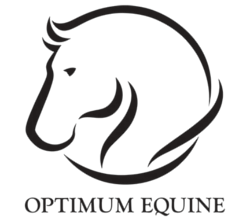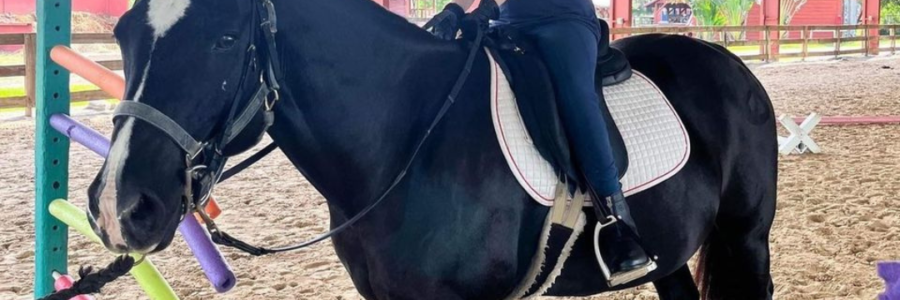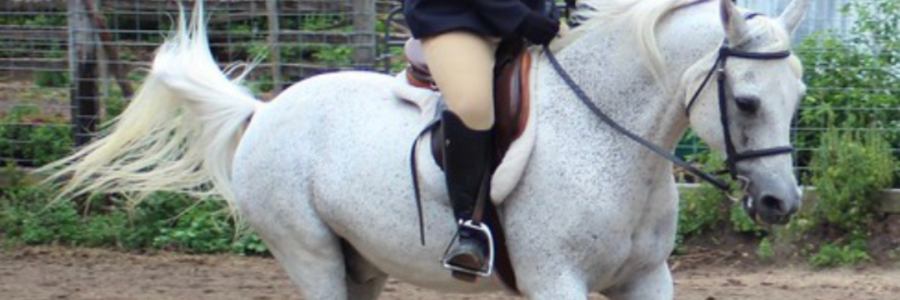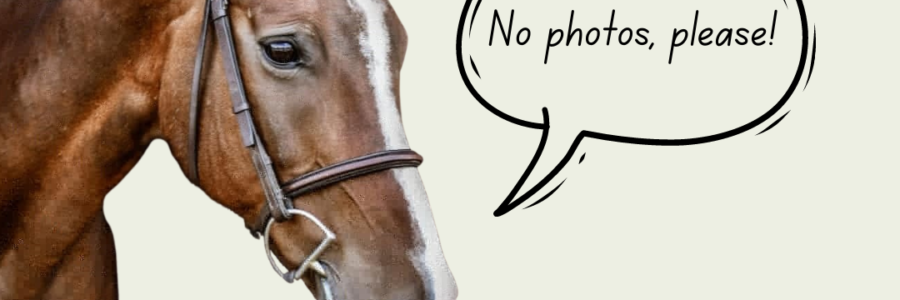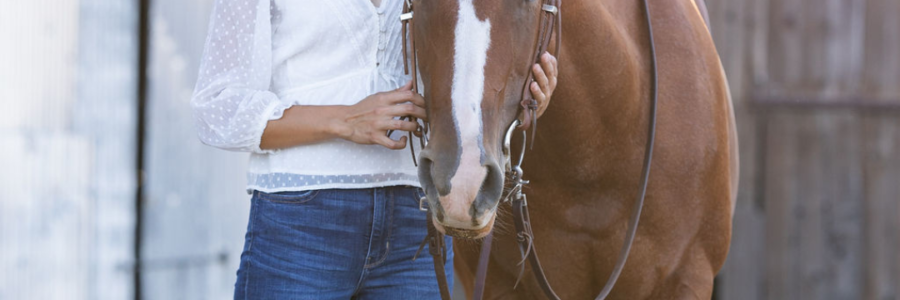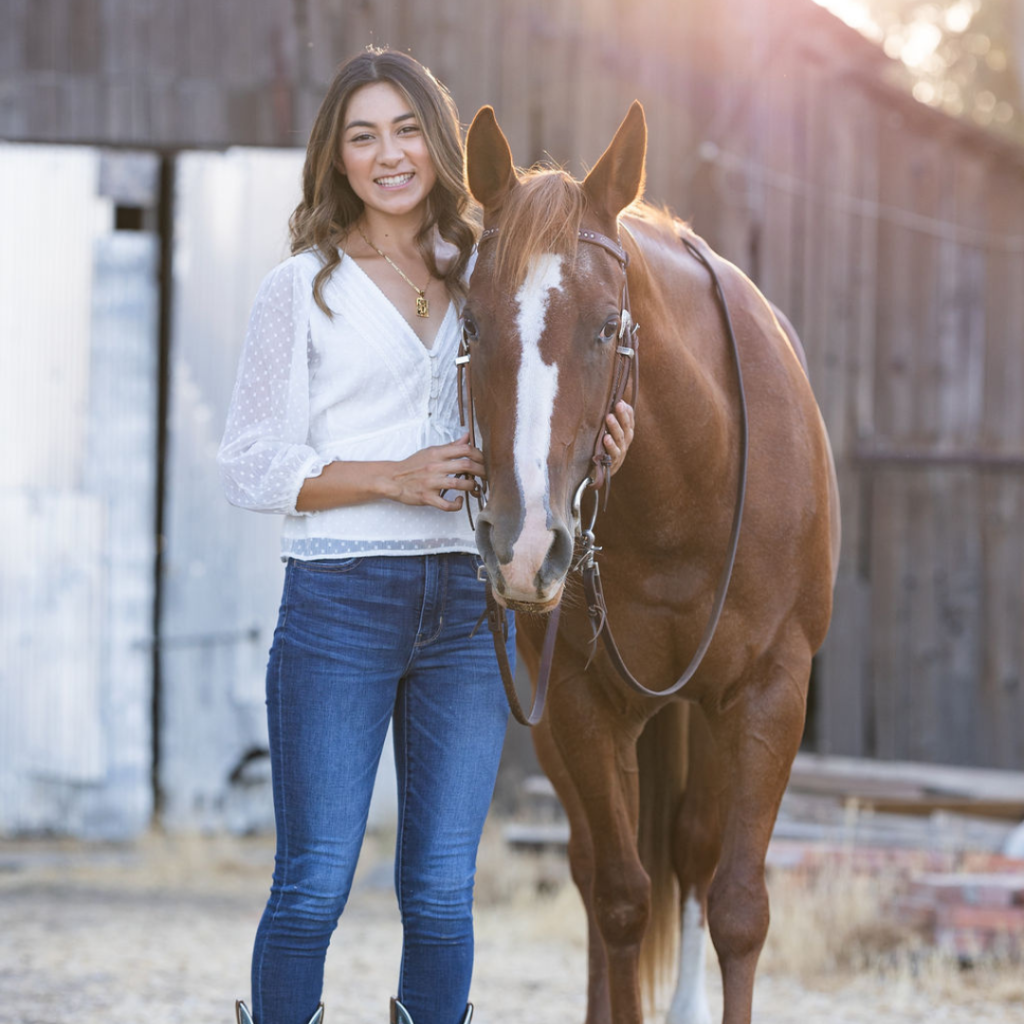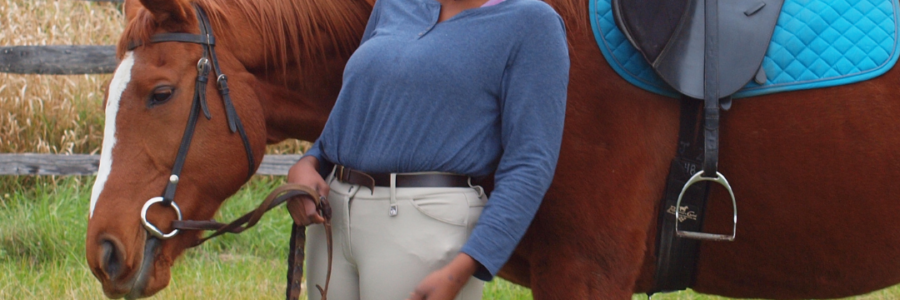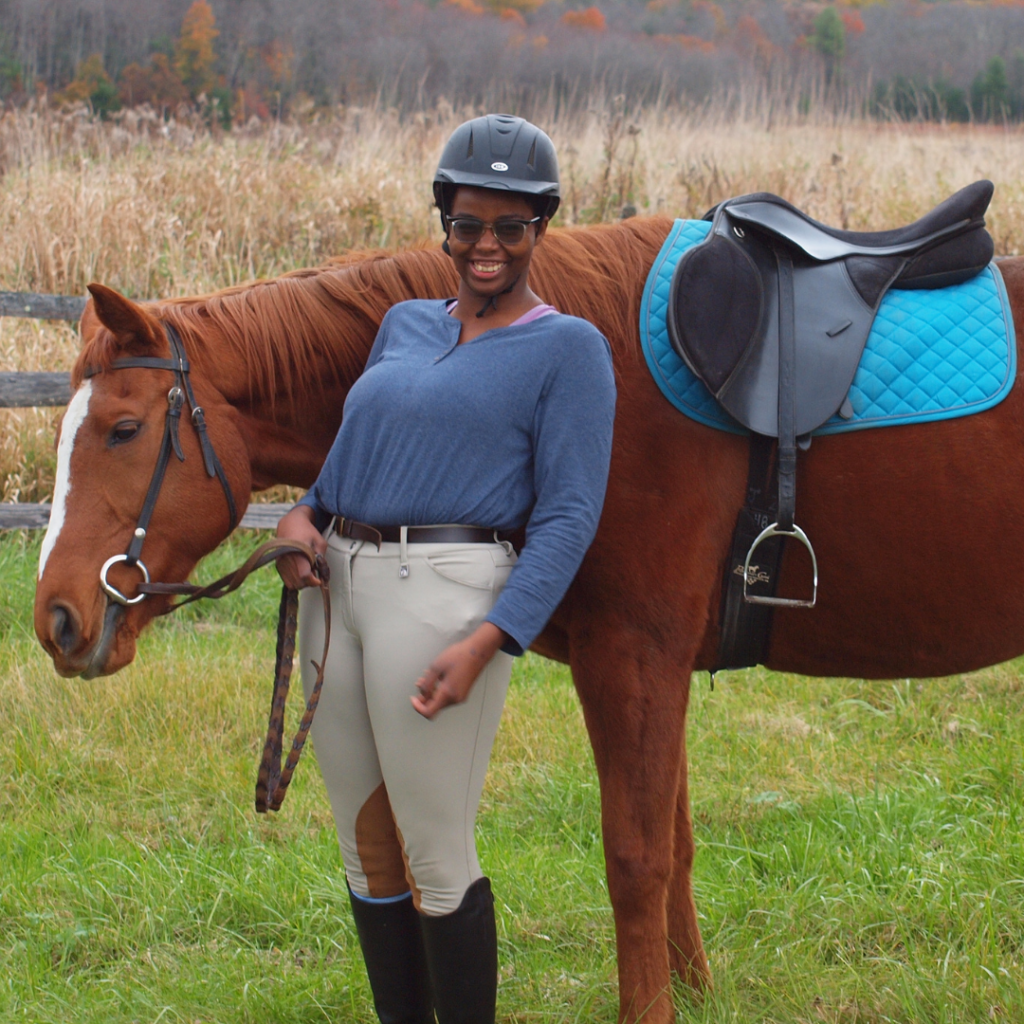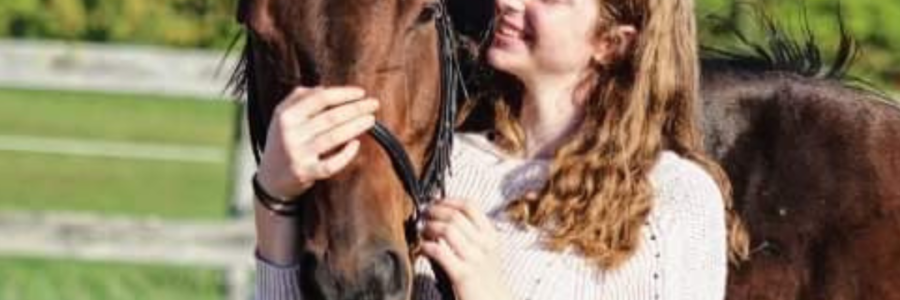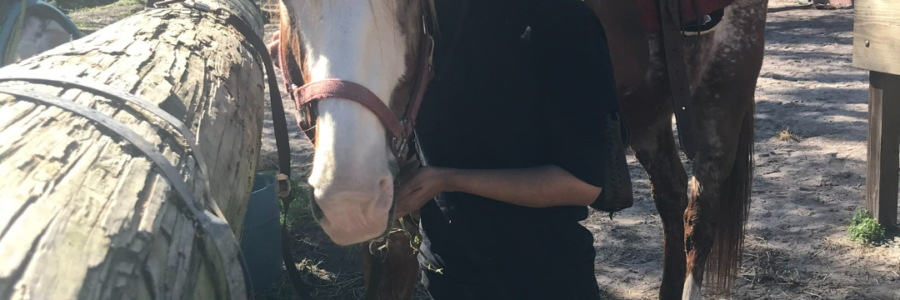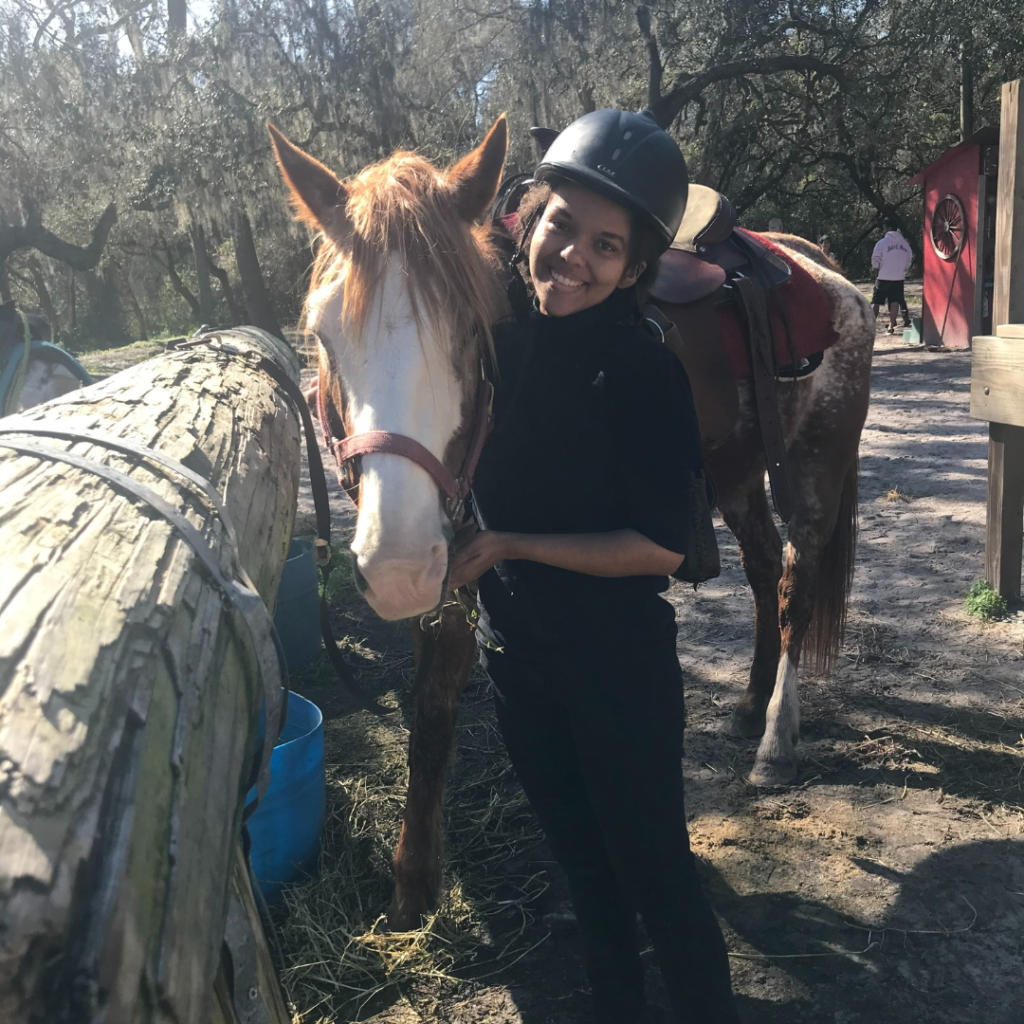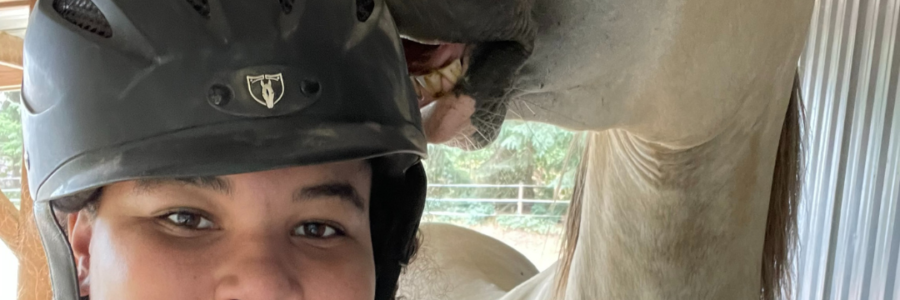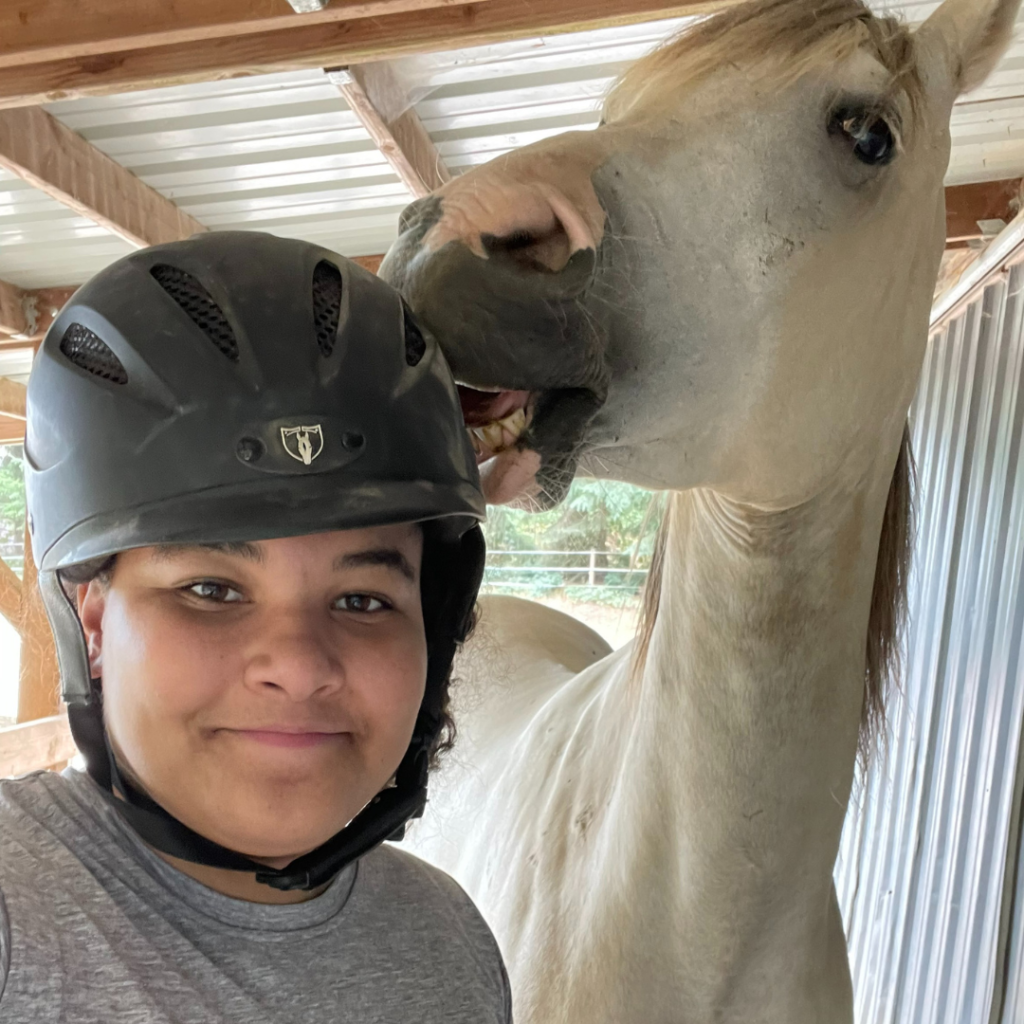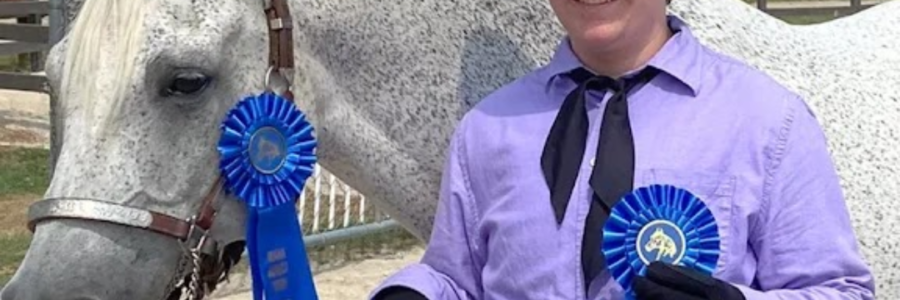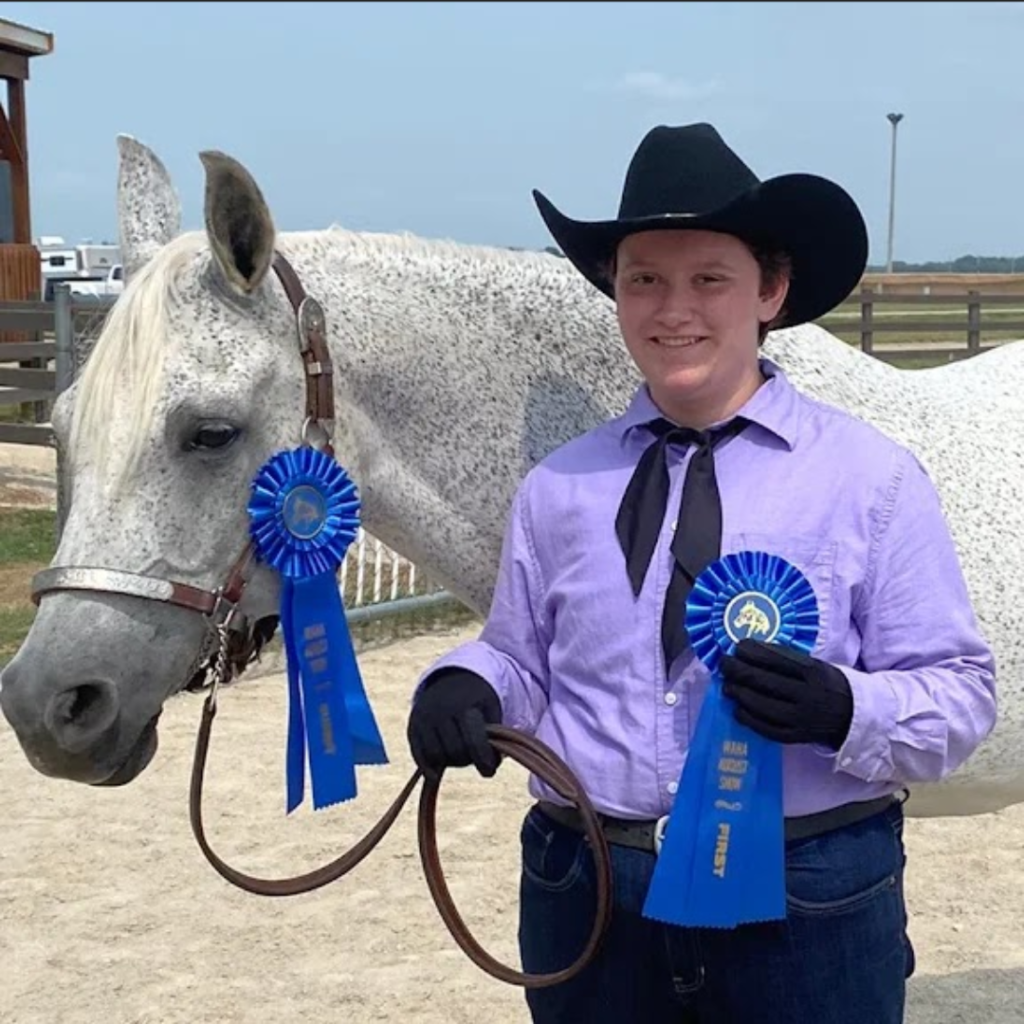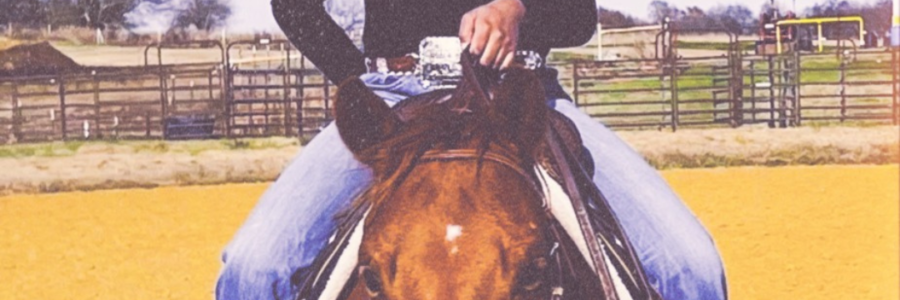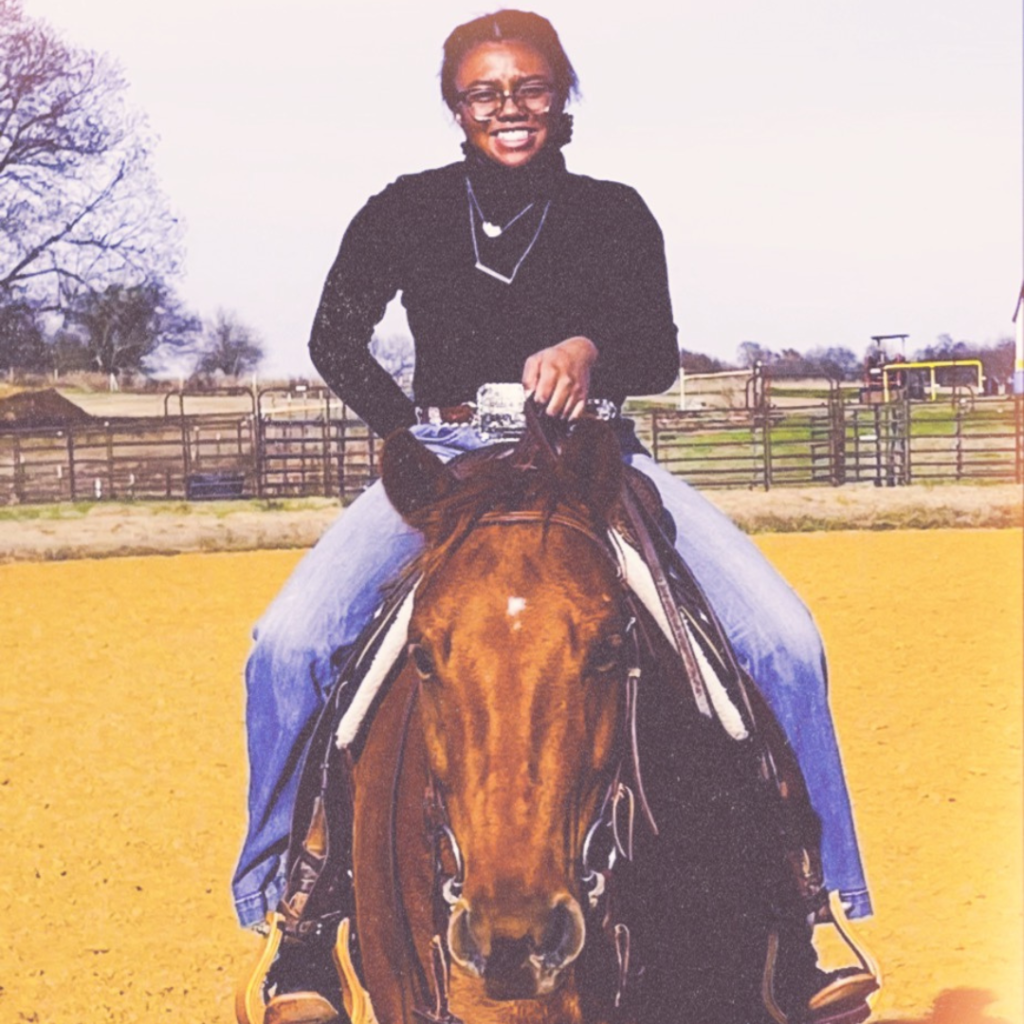
Bryanna is the Spring 2022 Dressage Dreamer Award recipient, sponsored by Optimum Equine.
My name is Bryanna Tanase, and I am a 23-year-old para-equestrian based in Trinity, FL. I was diagnosed with cerebral palsy at 11 months of age and, as a result, rely on a wheelchair for all my daily mobility and require assistance with most daily tasks. However, I like to focus on my capabilities rather than my disability, and horses help me do just that.
My love of riding and horses started with a trip to a farm in preschool where I became infatuated with a palomino pony, and my love has continued since then. Throughout my childhood, I only had small interactions with horses like pony rides at the zoo and piggybacking on vacation trail rides with my family because riding was inaccessible for me. So, I spent most of my younger years learning as much as I could about horses through books and movies and asking my parents for a pony every chance I had. It was during this time that my 10-or-11-year-old self-discovered dressage and paradressage through YouTube videos of Charlotte Dujardin, Laura Graves, Roxanne Trunnel, Rebecca Hart, and other well-known paraequestrian and able bodied riders. I fell in love with the sport and knew it was something I had to pursue and achieve the highest level of distinction in.
It wasn’t until my parents enrolled me in the therapeutic riding program at Quantum Leap Farm in April 2016 that I was finally able to learn to ride and be around horses on a regular basis. I was 17 years old, so I waited 14 years for this day. I progressed and gained so much skill and confidence in the program that I took my first independent ride in December 2016 and have been riding independently since then. In addition to riding, I have also had the opportunity to be actively involved in the care of horses and building a bond with the horse I ride.
I am engaged in the equestrian community through my social media like Instagram and Facebook and am advocating for greater inclusion of paraequestrians in the media and equestrian sport at large through writing articles for outlets like US Equestrian and Kerrits Equestrian Apparel for their diversity and inclusivity projects, respectively. I have also used my social media to educate others on cerebral palsy and the life experience of disabled people as a whole.
My ultimate goal is to qualify for the US Paradressage Team and the Paralympics. I am aiming for the 2028 Paralympics in Los Angeles. To accomplish this, I have set a series of smaller goals for myself. One of these was to receive a combination of therapeutic riding and dressage training, which I am meeting through working with my current therapeutic riding center, Quantum Leap Farm, and a newer one, Emerald M Therapeutic Riding Center. I have developed a stable seat and am now working on establishing the first pillar of the dressage. I am also aiming to make it on the Emerging Athletes List for Paradressage within the next two years, which can be achieved by earning two scores of at least 60% at USEF affiliated shows or through the USEF/USPEA virtual judging program. Other goals I have are to master 20-, 10-, 8-, and 6-meter circles, to keep a horse on the bit in a natural, unforced manner, and to participate in other aspects of equestrianism besides riding.
I audited my first clinic with Bill McMullin at LCH Equestrian in December 2020 and hope to attend more in the future, if I am able. One of my other big goals is to compete at the Paradressage National Championships, which take place in Tryon, NC, during October of each year. I rode in my first dressage clinic on June 26th, 2021, at Quantum Leap Farm. In exciting news, Cappy and I won our class in the Little Bit Therapeutic Riding Center Virtual Dressage Show in March with a 69.41%, my first blue ribbon ever! Cappy has been healing from laminitis since July, so I haven’t ridden him for a while, but I just started working with him again this March. A new horse named Giffin has also entered my life, and we are getting to know each other and preparing to re-enter the USEF/USPEA virtual judging competition in the summer. I am also riding in a clinic with Major Jeremy Beale, USDF Gold Medalist and two-time British Equestrian team on April 3rd.
I have overcome many challenges to become the equestrian I am today. The first is because of my physical health which also turns into a logistic problem. Many people in the equestrian industry are very wary of taking on students with a disability because of the liability involved. I cannot tell you how many times I have been turned away from facilities and told to go somewhere else despite my enthusiasm and want to learn because it is clear that the trainer and owner believed I would be too much of a headache to handle. If the attitude of the facility staff is not an issue, another roadblock comes in the form of the accessibility of the facility itself.
The main issue is that many stables in my area do not have a safe way for me to mount and dismount, but sometimes the accessibility can be so poor that I cannot get to the barn aisles to see the horses. Even if I suggest a solution to these issues that would not be too much of a hassle to implement, I am met with unwillingness to accommodate. Additionally, if we overcome the first two obstacles, there may not be a safe horse in the barn for me to ride. Sometimes, no matter how much the barn staff wants to help, there is no prudent way for me to ride and be engaged in the culture at a barn, so I must give up on the opportunity and try to find something else. I would like to branch out from therapeutic riding centers to experience an able-bodied dressage barn, but I cannot do that without support from the staff there. I passionately believe that the barn should be a safe place where everyone is welcome, and that there should not be separation between able bodied and para-equestrian riders. We should be able to share our love of horses together in harmony.
Thankfully, because of the wonderful people at Quantum Leap Farm and Emerald M, I can ride despite this adversity. I have also overcome the social challenge of convincing my parents to let me pursue my athletic ambitions, after many disagreements, I won a battle well fought, and they now see that pursuing my equestrian dreams is something I am passionate about. My parents are a huge part of my support team and I am so grateful for all they have done for me. The encouragement and advice I receive from them is really motivating. I am the only equestrian in my family, and I am so proud to be one. I have moved into my own apartment in Trinity FL, and although I am employed part time, I am facing financial barriers. Not only do I have to pay for riding lessons and show fees, but also physical therapy to ensure that my body can keep up with the demands of riding. Riding is not just a hobby for me, it is a passion, and I hope to use my influence to ignite positive change in the industry and create opportunities for para-equestrians.
